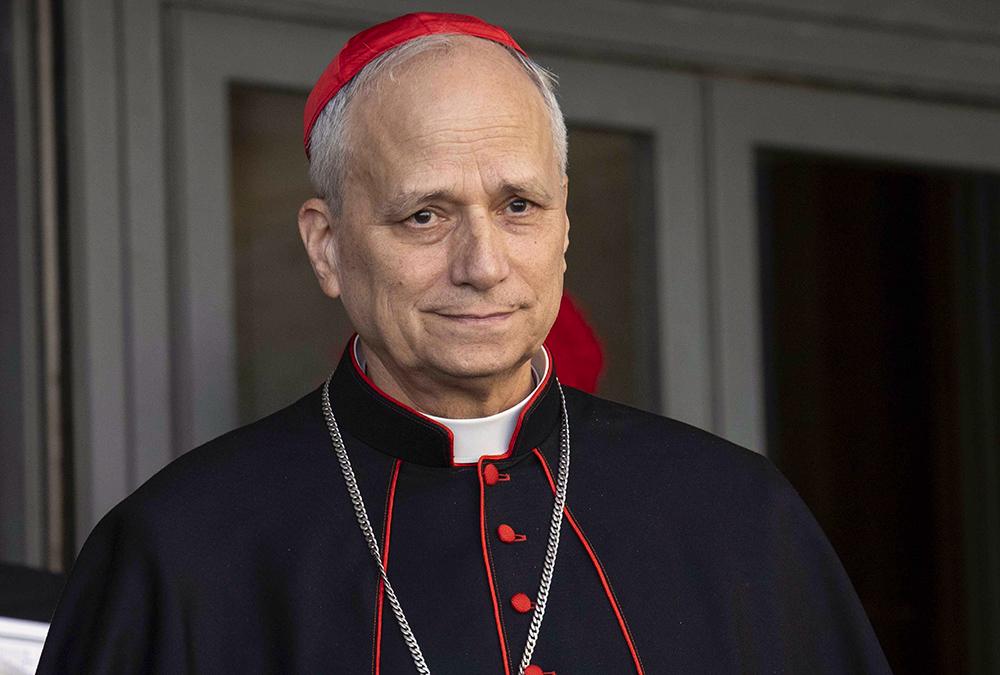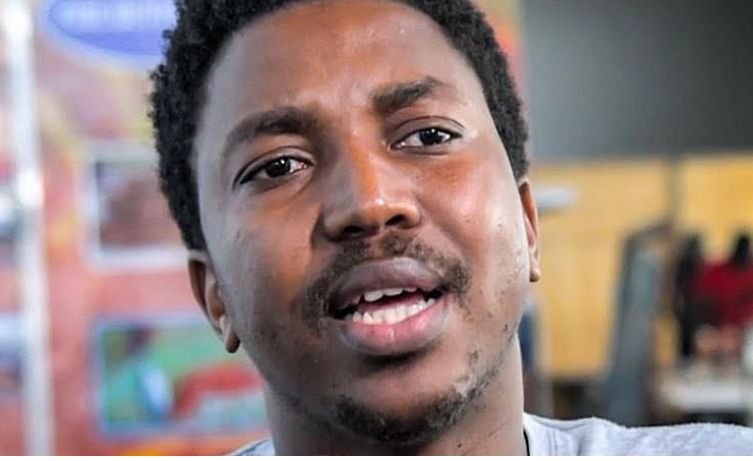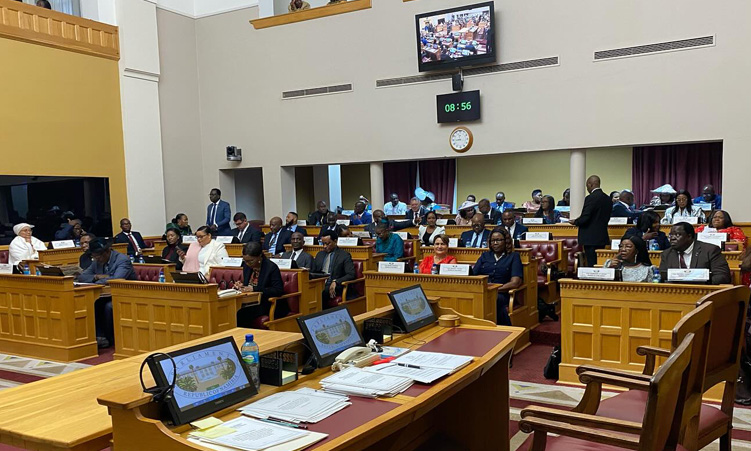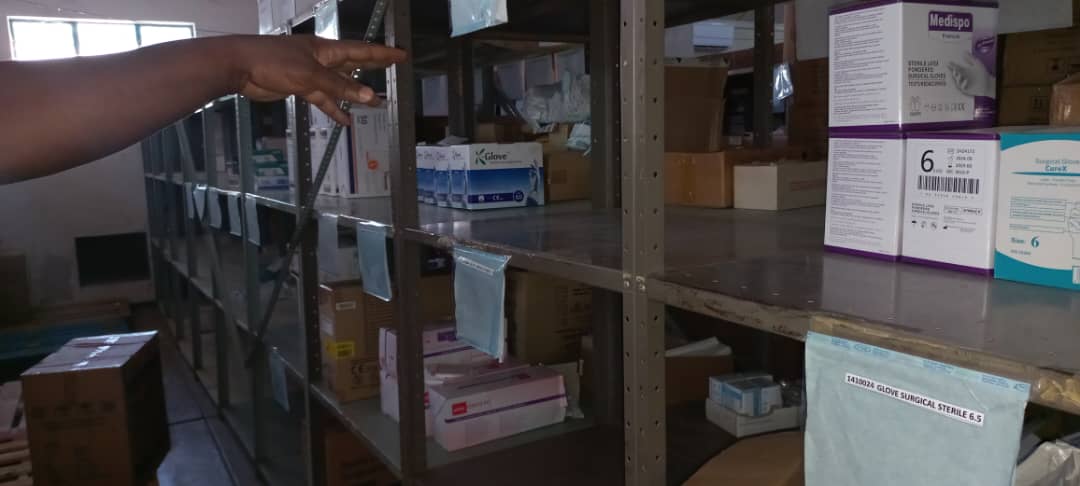ALLEGATIONS from Namibian high treason suspects who claim they were abducted with the connivance of the Zambian government, are an insult, a senior Zambian immigration official stated in the High Court at Grootfontein yesterday.
“My heart bleeds because of such a statement,” Zambian immigration officer George Mundia said when asked by Deputy Prosecutor General Herman January for his reaction to claims that the Namibian authorities had abducted them from Zambia, with the connivance of the Zambian government. Mundia added: “It’s a sad affair for me to listen to such accusations, and I take it as an insult to my government”.Mundia was the sixteenth witness to testify for the prosecution in the hearing that should result in a ruling from Judge Elton Hoff on whether a special plea by 13 of the 120 high treason accused before the court will be accepted by the court.They are claiming that a Namibian court cannot try them because they were brought before the court through illegal means.Mundia told the court that several of the treason suspects whom the Zambian authorities had handed over to their Namibian counterparts had expressed their wish to see the Caprivi Region “liberated”, had voiced their willingness for arms to be used if this could not be achieved through democratic means, and had also admitted that they had traded food for arms in Angola as part of their efforts to further their quest.There were six people in the first group of Namibians involved in the treason case that he dealt with, Mundia related.They were the late Steven Mamili, Thaddeus Siyoka Ndala, Martin Siyano Tubaundule, Oscar Nyambe Puteho, Charles Mafenyaho Mushakwa and Moses Limbo Mushwena, who were arrested as illegal immigrants in Zambia’s Western Province in June 1999, Mundia said.He told the court that, having realised that the six had entered Zambia illegally, he made them complete a Zambian immigration form.On that document, each of the six stated “Caprivian” to be his nationality, and Caprivi to be the country where he had last resided, Mundia said.He went on to indicate that those statements had damaged their attempt to obtain political asylum in Zambia.According to Mundia, he consulted his colleagues to find out if there was such a country as “Caprivi”; upon finding out there was not, he realised the six asylum-seekers were “liars”, he said.Having been found to have lied to immigration officers, he explained, the six could in terms of Zambian immigration law be arrested, detained and deported by a Zambian immigration officer.He claimed that upon their entry into Zambia the six had brought an AK47 rifle with them – something never mentioned by other witnesses who have previously testified on the arrest of the six, defence counsel Patrick Kauta pointed out in his cross-examination of Mundia.After their arrest, they said that if diplomatic means did not succeed in liberating the Caprivi Region, the use of AK47s would have to suffice, Mundia claimed.A similar statement was made by two other Namibians whom the Zambian authorities also handed over to Namibia later, in December 1999, he added.Those two were high treason suspect Andreas Mulupa, who is one of the 13 suspects to have raised the special plea on jurisdiction, and Stephen Phiri, who was also accused in the high treason case until charges against him were dropped in May last year.Mundia said those two had declared after their arrest in Zambia that they had been transporting food to Angola to exchange it for rifles, which were to be taken back to Namibia.The hearing continues today, with the seventeenth next witness set to be called by Deputy Prosecutor General Herman January.Mundia added: “It’s a sad affair for me to listen to such accusations, and I take it as an insult to my government”. Mundia was the sixteenth witness to testify for the prosecution in the hearing that should result in a ruling from Judge Elton Hoff on whether a special plea by 13 of the 120 high treason accused before the court will be accepted by the court. They are claiming that a Namibian court cannot try them because they were brought before the court through illegal means. Mundia told the court that several of the treason suspects whom the Zambian authorities had handed over to their Namibian counterparts had expressed their wish to see the Caprivi Region “liberated”, had voiced their willingness for arms to be used if this could not be achieved through democratic means, and had also admitted that they had traded food for arms in Angola as part of their efforts to further their quest. There were six people in the first group of Namibians involved in the treason case that he dealt with, Mundia related. They were the late Steven Mamili, Thaddeus Siyoka Ndala, Martin Siyano Tubaundule, Oscar Nyambe Puteho, Charles Mafenyaho Mushakwa and Moses Limbo Mushwena, who were arrested as illegal immigrants in Zambia’s Western Province in June 1999, Mundia said. He told the court that, having realised that the six had entered Zambia illegally, he made them complete a Zambian immigration form. On that document, each of the six stated “Caprivian” to be his nationality, and Caprivi to be the country where he had last resided, Mundia said. He went on to indicate that those statements had damaged their attempt to obtain political asylum in Zambia. According to Mundia, he consulted his colleagues to find out if there was such a country as “Caprivi”; upon finding out there was not, he realised the six asylum-seekers were “liars”, he said. Having been found to have lied to immigration officers, he explained, the six could in terms of Zambian immigration law be arrested, detained and deported by a Zambian immigration officer. He claimed that upon their entry into Zambia the six had brought an AK47 rifle with them – something never mentioned by other witnesses who have previously testified on the arrest of the six, defence counsel Patrick Kauta pointed out in his cross-examination of Mundia. After their arrest, they said that if diplomatic means did not succeed in liberating the Caprivi Region, the use of AK47s would have to suffice, Mundia claimed. A similar statement was made by two other Namibians whom the Zambian authorities also handed over to Namibia later, in December 1999, he added. Those two were high treason suspect Andreas Mulupa, who is one of the 13 suspects to have raised the special plea on jurisdiction, and Stephen Phiri, who was also accused in the high treason case until charges against him were dropped in May last year. Mundia said those two had declared after their arrest in Zambia that they had been transporting food to Angola to exchange it for rifles, which were to be taken back to Namibia. The hearing continues today, with the seventeenth next witness set to be called by Deputy Prosecutor General Herman January.
Stay informed with The Namibian – your source for credible journalism. Get in-depth reporting and opinions for
only N$85 a month. Invest in journalism, invest in democracy –
Subscribe Now!










